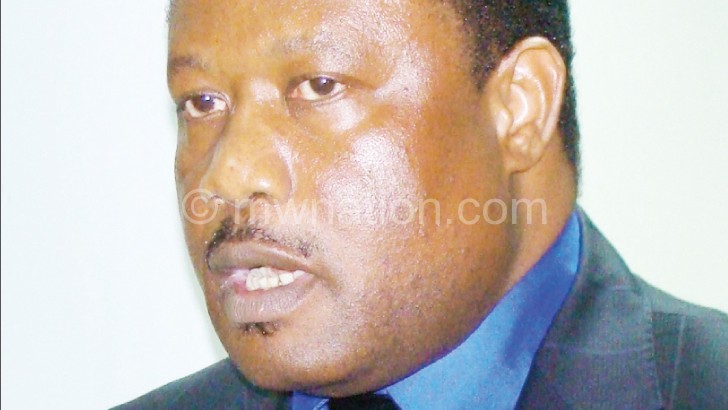Racial face of cashgate
- Asian businessmen spared
- Ligoya wrote Bingu on matter
The spate of arrests in Cashgate and the financial scandals has given the impression that it is only indigenous Malawians who have been defrauding government.

Weekend Nation investigations can reveal that in almost all major reports on recent financial scams in government, there are Malawians of Asian origin doing business in the country on the list of suspects.
Records indicate that former Reserve Bank of Malawi (RBM) governor, Perks Ligoya, wrote former president the late Bingu wa Mutharika on February 17 2012, advising him on dubious transactions involving several companies owned by Malawians of Asian origin who colluded with senior police officers and staff at the Accountant General’s (AG) office.
The correspondence was a precursor to Baker Tilly’s report in 2013 that documented what has come to be known as Cashgate in which an estimated K20 billion ($38.2 million) was siphoned for goods not delivered and services not rendered for a six-month period between April and September 2013.
Some of the companies named in the Cashgate report are owned by Malawians of Asian origins, none of them has been interrogated or mentioned as witness in a court of law.
Ligoya named six companies owned by Malawians of Asian origin as having benefitted fraudulently to the tune of K2.7 billion ($5.2 million) in collusion with the police and the Accountant General’s office.
Prior to that correspondence, the Anti-Corruption Bureau (ACB) had arrested Malawi Police Service then director of finance Elijah Kachikuwo and two officers in the service’s Accounts Department, Garnet Chandema and Barnet Mwasinga, in connection with the disappearance of K400 million ($763 359) at the AG’s office.
Similarly, the reconstruction of cashbook carried out by PricewaterhouseCoopers also reveals a number of companies of this nature and yet none of the arrested suspects is a Malawian of Asian origin.
In Ligoya’s correspondence, he lamented that despite discovering the fraudulent activities, investigations into the matter by government agencies were going at a deliberately slow pace.
“The investigations are going at a slow pace, which may give the suspects time to change ownership of assets that were acquired using the proceeds of crime which may frustrate efforts to trace and recover those assets,” reads Ligoya’s memo in part.
Some of the suspects currently on trial for plundering public funds lamented failure by authorities to pounce on owners of some companies which participated in the plunder but remain free from prosecution.
Two Cashgate suspects—both on trial for their separate roles in the looting of over K20 billion ($38.2 million) of State funds in 2013—spoke to Weekend Nation separately on strict condition of anonymity.
One of the suspects bemoaned the “double standards” in the way investigations and prosecutions have been undertaken.
According to an appendix in the Baker Tilly report on the biggest beneficiaries of the Cashgate, foreign firms with two companies allegedly linked to a Malawian of Asian origin family received over K12 billion ($22 .9 million) of Cashgate funds.
The report says forensic auditors reviewed over 53 local and foreign businesses and “the majority of the ineligible funds identified were paid to four individuals who control seven different businesses.”
The Cashgate suspects cited the Baker Tilly’s report—which revealed how the scandal transcended borders as several firms were implicated—as evidence of how authorities have favoured foreigners implicated in the scandal.
“There is no effort at all to bring the foreign companies to book. Why are we being arrested and paraded in court as criminals while others continue to enjoy their money in peace? It’s double standards of the highest order,” said one suspect.
Probe still on?
Anti-Corruption Bureau spokesperson EgritaNdala last week insisted the bureau was still investigating Cashgate, but could not be drawn into specific cases for fear of jeopardising the investigations.
“The Anti-Corruption Bureau is continuing with investigations into the plunder of public funds. The Bureau cannot comment on specific issues which are operational in nature as doing so may jeopardise the operations,” Ndala said in an email response.
But Ndala explained that foreign investigations are more challenging for the bureau as they require more resources and pose unique legal challenges.
“The challenges faced could be financial and legal in that foreign investigations require huge financial resources. They also require mutual legal assistance processes to be followed when the need arises. This takes time to be completed. The Bureau will follow that when the need to do so arises. The Bureau sometimes uses its contacts in a given country for assistance,” she said.
Oswald Lutepo, the owner of IPS, Alexander Banda and Nelson Kauwa of O&G Construction and Thuso Investments, Stafford Mpoola of Stadal Building Contractors and Image Investments, named as some of the biggest beneficiaries, have all been prosecuted with Lutepo pleading guilty to defrauding K4 billion of State funds.
FAST FACTS
l Three police officers arrested in December 2011 in a case that involved companies owned by Malawians of Asian origin
l Baker Tilly report named several companies but none arrested
l Cashgate suspect bemoans double standards






Please reveal names of companies of owned by Malawians of Asian origin. Don’t fear. After all, their names are in the report. They should be arrested as well. But we know that these Asians are in league with politicians.
In fact, these Asians have been stealing from Malawians for a long time. Only Kamuzu knew them.
Rabecca, can you do a follow up story. These Indians have been treated with kid’s glove for a long time.